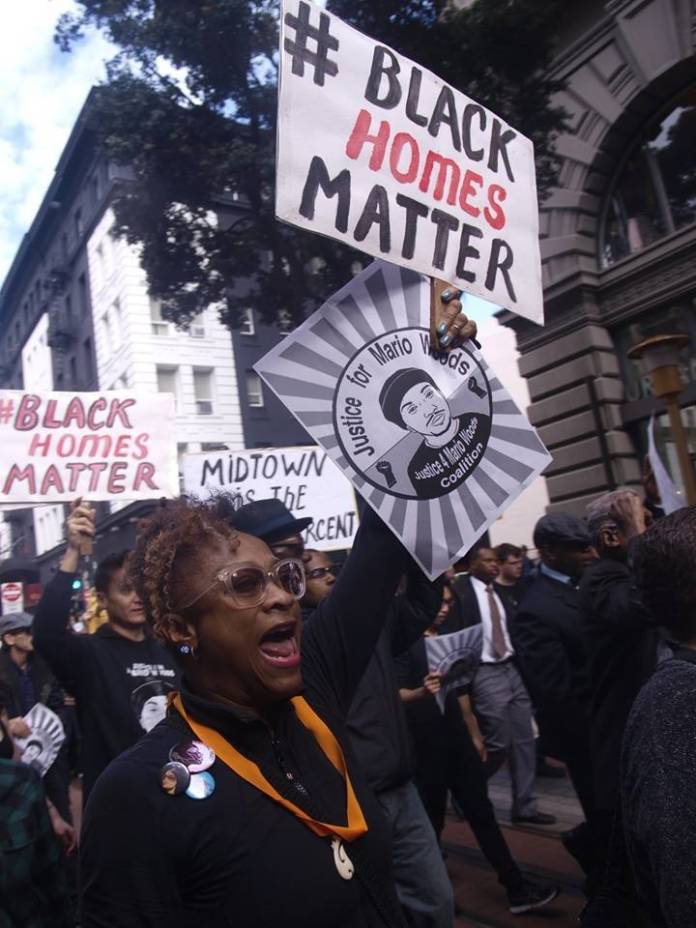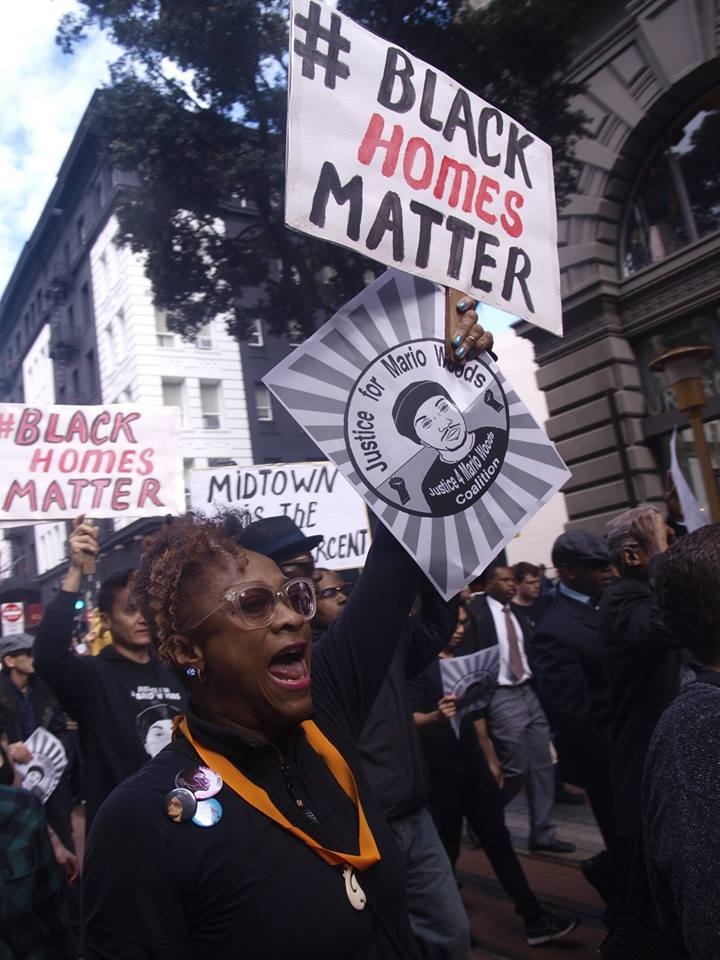
At the Midtown housing complex in the Western Addition, tenants are doing their best to comply with the city’s shelter-in-place order, but are facing one major challenge—the loud, disruptive, non-essential construction in their buildings.
After a three-week respite, construction is scheduled to begin again this week in preparation for the relocation of off-site tenants to the Midtown property, unless the Mayor’s Office of Housing responds to residents request for peace and quiet— and no off-site relocations— during the order to shelter-in-place.

Midtown residents, many of whom are seniors and African Americans, are considered at high risk for contracting COVID-19. The Black community is made particularly susceptible to the COVID virus through de-prioritization and systemic discrimination in the healthcare system. But a less discussed susceptibility is exposure at a tenant’s place of housing, and interference in their abilities to effectively shelter-in-place.
“Having construction crews walking through our buildings without wearing masks, without protective gear,” says resident Phyllis Bowie, “is creating a huge problem for us.”
The unnecessary construction is not just posing a threat for Midtown’s elderly higher-risk residents, it also poses problems for families at Midtown with school-age children quarantining at home. One tenant reported redecorating a room in his apartment as a study room for his three kids. Once the room was ready for at-home lessons, construction began in the unit next door.
“It’s like the sound of metal on metal. It’s non-stop. I honestly can’t even imagine what they’re doing in there.” said Midtown resident Khalid Smahi, who has called both the Mayor’s Office of Housing and Midtown’s interim property manager without a response.
When one tenant succeeded in reaching the Mayor’s Office of Housing to ask why non-essential construction was happening at Midtown, a staff person said, “given that the work taking place [at Midtown] in the vacant units is to facilitate the rehabilitation of an affordable housing property, we believe it to be allowed as an Essential Activity under the Health Order.”
Help us save local journalism!
Every tax-deductible donation helps us grow to cover the issues that mean the most to our community. Become a 48 Hills Hero and support the only daily progressive news source in the Bay Area.
The problem with this approach is that it views affordable housing properties as a development asset of the Mayor’s Office of Housing, rather than a very essential place to shelter during the Covid-19 virus for the people who actually live there.
The city claims to be rehabbing some Midtown units so that tenants from other affordable housing and public housing sites can be moved to Midtown during their own construction projects. But this begs the question: why would the city ask at-risk tenants of any sites to move during the pandemic? Why wouldn’t the city prioritize the ability of tenants to shelter-in-place by putting a pause on all rehab projects across the city so that tenants can stay put?
“Its an enormous health risk for every single resident of Midtown,” said Bowie. “Preparing relocation units for affordable housing developers is not more important than our lives. In fact, we’re hoping that Midtown can become a priority site for COVID testing.”
Meanwhile, the Mayor’s Office of Housing has cancelled its monthly meetings with residents, and Midtown’s interim property manager, Kalco, has cancelled Midtown’s food bank service— all over virus concerns.
In the interest of applying consistency to precautions over the virus, Midtown residents say they hope that the Mayor’s Office of Housing will affirm its commitment to public health, particularly in the African American community, by ceasing non-essential construction and off-site relocations amongst its city-owned properties for the duration of the order to shelter-in-place.
